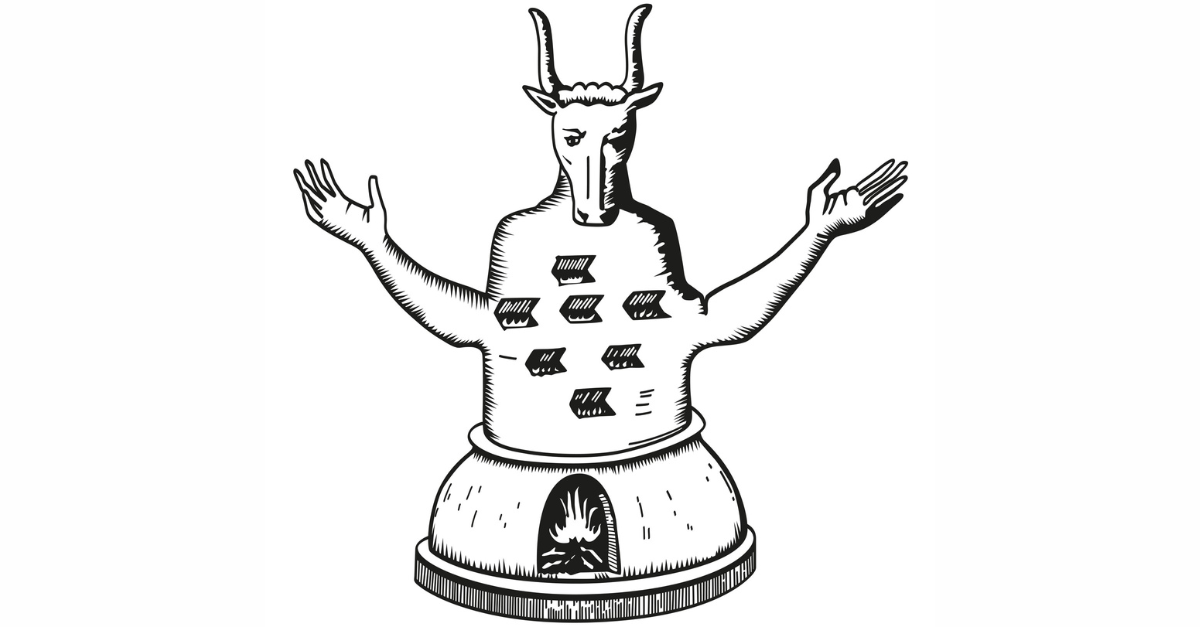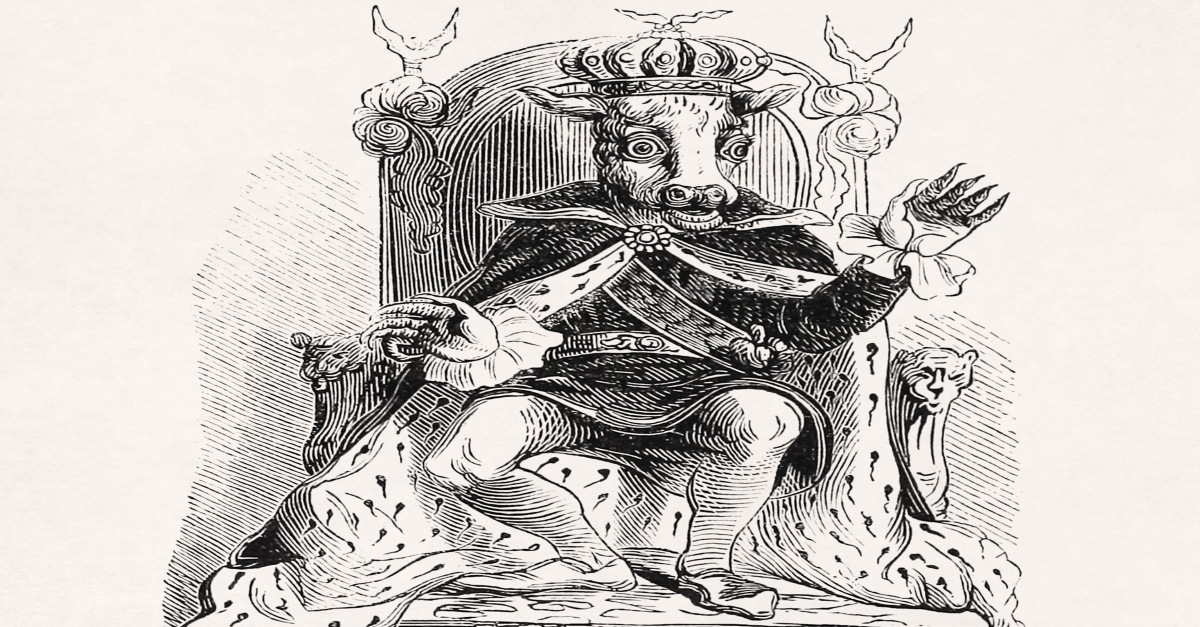What Does the Bible Say about Molech?
Share

People often begin reading through the Bible with great intent to go from Genesis to Revelation, only to find themselves adrift once they reach the book of Leviticus. Leviticus gets a bad rap because it contains many rules and instructions delivered to the Israelites. The book has many rules—some about feasts and celebrations. The God of the Bible cared that His people make time to celebrate, rejoice, and gather. However, Leviticus also contains stern warnings about engaging in idol worship, especially the worship of Molech.
What Does the Bible Say about Molech?
Names from ancient times often have several variations—largely because different cultures had different spellings and so on. Therefore, Molech is sometimes spelled Moloch or Molek. He is also sometimes known as Baal, although Baal could have been a reference to any false god. Some trace the origin of this idol to the Phoenicians, who had a god they referred to as “mlk.” The Hebrew people would add “eth” to a name to indicate shame, such as Ashtoreth or Molech (a variation of eth). “Melek” in Hebrew is a word for “king.” So, you will see some references to the “king of shame” when researching Molech. Molech was the reigning god of many tribes surrounding the Israelites in ancient times. In the Bible, Molech is associated with the Canaanites.

Photo Credit: Getty Images/PeterHermesFurian
What Did Molech Look Like?
Disclaimer: The following paragraph discusses pagan idolatry, which involves practices that may be triggering for sensitive individuals. Proceed with caution.
Molech was depicted as a human body with a bull’s head. His statue was usually made of bronze with arms outstretched and a belly that opened to serve as a furnace. A particularly disturbing practice of Molech worship was infant or child sacrifice. Families allowed children to “pass through the fire” or be burned alive to Molech to secure favor and prosperity. Leviticus 18:21 ESV reads, “You shall not give any of your children to offer them to Molech, and so profane the name of your God: I am the Lord.” Moses was preparing the Israelites to enter the land of Canaan, and God issued stern warnings about engaging in their evil practices.
The story in Genesis 22 of God testing Abraham by commanding him to offer Isaac as a burnt sacrifice is thought to be related to Molech worship. God distinguishes Himself from all false gods, especially Molech, by stopping Abraham from completing the sacrifice. Instead, God provides the sacrifice: a ram stuck in a thicket, foreshadowing the provision of His only son, Jesus, sacrificed for all our sins. Throughout the Old Testament, God contrasts Himself with idols in many ways. While idols had to be carried, our God carries us. While idols were deaf, blind, and mute, we worship a God who sees, hears, and speaks. While idols demanded sacrifices, our God sacrificed His Son for us.
Where Does the Bible Mention Molech?
When God delivered the Israelites from being slaves in Egypt, it had been centuries since they had governed themselves. During their time wandering in the desert, God prepared them to enter a land where there had been centuries of evil practices, particularly those surrounding the worship of Molech.
Through Moses, He issued this strong warning in Leviticus 20:1-5 NKJV:
“Then the Lord spoke to Moses, saying, ‘Again, you shall say to the children of Israel: ‘Whoever of the children of Israel, or of the strangers who dwell in Israel, who gives any of his descendants to Molech, he shall surely be put to death. The people of the land shall stone him with stones. I will set My face against that man, and will cut him off from his people, because he has given some of his descendants to Molech, to defile My sanctuary and profane My holy name. And if the people of the land should in any way hide their eyes from the man, when he gives some of his descendants to Molech, and they do not kill him, then I will set My face against that man and against his family; and I will cut him off from his people, and all who prostitute themselves with him to commit harlotry with Molech.’”
The Living God loves life and protects life. When He orders lives to be destroyed, it is not without reason. The Canaanites not only practiced child sacrifice; they also engaged in temple prostitution. All these practices contributed to a culture of death while God led the Israelites into a culture that respected life.
Sacrificing children or infants in exchange for a favor is antithetical to God’s nature, and he condemns the practice in the strongest terms. God also commanded that the kings of Israel should not make marriage alliances with foreign nations because it would bring trouble. Solomon compromised his heart for God by yielding to his wives and erecting places of worship for Chemosh and Molech (1 Kings 11:6-8). During the reign of King Josiah, he sought to reform Israel and return the people to devotion to God by destroying the places, especially in Topheth, where child sacrifice had been practiced (2 Kings 23:10).
When Jeremiah prophesied the fall of Jerusalem to the Chaldeans, he reported that God was allowing it. Partly, God was allowing it because “They built the high places of Baal in the Valley of the Son of Hinnom, to offer up their sons and daughters to Molech, though I did not command them, nor did it enter into my mind, that they should do this abomination, to cause Judah to sin” (Jeremiah 32:35 ESV).
Idolatry was common in the Old Testament, but it always came at a price. God repeatedly disciplined His people for their spiritual unfaithfulness. Regardless, God is faithful to His people.
What People Worshipped Molech?
There is historical evidence that the Phoenicians worshipped Molech. Throughout the Old Testament, Molech is associated with the Canaanites, Philistines, Arameans, and Semitic tribes. Sometimes Molech is associated with the Ammonites. Of course, when the Greek empire took over, the gods of Greek mythology absorbed many of these gods, and then those of the Romans superseded those gods.
Why Is Molech an Especially Evil Idol?
The primary idols of surrounding tribes in the Old Testament were Baal, Ashtoreth, and Molech. All were forbidden for the Israelites to worship, and many of these idols demanded strange practices. When Elijah was confronting the prophets of Baal, they threw themselves into a frenzy trying to “conjure” their god, even cutting themselves with swords and lances “until the blood gushed out upon them” (1 Kings 18:28 ESV). Ashtoreth was a fertility goddess, so there were sexual rituals involved in worshipping her. But, of course, when a culture or nation can tolerate burning children alive in the belly of a bronze idol to secure their prosperity, they have reached a new level of evil. When King Manassah reigned in Judah, he built altars to the Baals and Ashtoreth, but 2 Chronicles 33:6 describes what the worship of Molech ushered in:
“And he burned his sons as an offering in the Valley of the Son of Hinnom, and used fortune-telling and omens and sorcery, and dealt with mediums and with necromancers. He did much evil in the sight of the Lord, provoking him to anger.”

1863 illustration of Molech for The Infernal Dictionary by demonologist Jacques Collin de Plancy. Photo Credit: Getty Images/Gwengoat
There was sometimes such power behind idols. Some have theorized that demons were the force behind them in some regions. Molech would certainly be a candidate to imagine that forces of evil helped perpetuate his worship and his relentless hunger for infant blood. This is why you will see some modern-day references to Molech related to the abortion movement. Some see comparisons between the rise and acceptance of abortion and the ancient worship of Molech. People still see references to Molech in fantasy literature and video/computer gaming communities, but that is because many ancient idols are mentioned.
Molech is a tough subject to discuss. Reading about idolatry and associated practices can be disheartening, especially when referencing modern times. I believe it’s vital that we conclude on a redemptive note. Remember the words of John 1:1-5 and believe God when He tells us that the light of life still shines and the darkness has not (and will not) overcome it:
“In the beginning was the Word, and the Word was with God, and the Word was God. He was in the beginning with God. All things were made through him, and without him was not any thing made that was made. In him was life, and the life was the light of men. The light shines in the darkness, and the darkness has not overcome it.”
Photo Credit: Charles Foster 1897. (Public Domain)
This article is part of our Bible resource for understanding the significance and meaning of biblical phrases and ideas. Here are our most popular Bible articles to grow in your knowledge of God's Word:
Promises of God in the Bible
Is "This Too Shall Pass" in the Bible?
What Was the Ark of the Covenant?
Top 10 Bible Stories for Kids
“Iron Sharpens Iron” in Proverbs 27:17
"Fearfully and Wonderfully Made" in Psalm 139
“Be Still and Know That I am God” in Psalm 46:10
"No Weapon Formed Against Me Shall Prosper" - Isaiah 54:17
